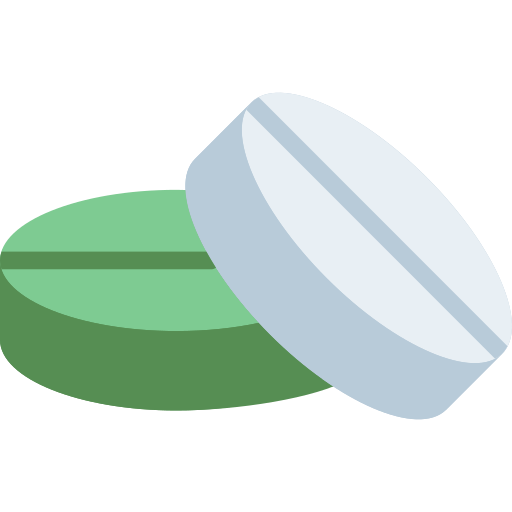
Product Details
Description
Allylestrenol is an oral Gestagen. In castrated animals, it has a potent pregnancy-maintaining action without producing hormonal side-effects, in particular no masculinisation of female foetuses. Clinical studies have indicated that Allylestrenol stimulates the endocrine function of the trophoblast. In vitro, Allylestrenol stimulates the placenta to produce more progesterone. In patients with pregnancy at risk, abnormally low levels of placental hormones (HCG, HPL, oestrogens and progesterone) and some specific enzymes (oxytocinase, CAP) were found to be increased to normal during treatment. In the majority of patients with pregnancy at risk who were treated with Allylestrenol the threat of abortion was removed and pregnancy brought to term without complications. Allylestrenol is very well tolerated. Side-effects of any importance have not been observed.
Allylestrenol has been found to have a relatively weak progestational effect on the human endometrium. To obtain a full secretory endometrium in oestrogen-primed castrated women or to postpone menstruation (with an oestrogen added) in normal ovulating women, doses of allylestrenol were required which were higher than those recommended for the treatment/prevention of abortion. In vitro studies have shown that allylestrenol stimulates the synthesis of progesterone in the human placenta. It also brought about a significant (p/. 0,01) increase in the production of some specific placental enzymes (cystine aminopeptidase and heat-stable alkaline phosphatase). Histological and histochemical changes indicating an increased activity have been found in the placenta, particularly in the syncytiotrophoblast of women with a normal and threatened pregnancy, treated with allylestrenol. The stimulatory effect of allylestrenol on placental function was also suggested by the increased level of placental hormones (pregnanediol, oestriol, HCG and HPL) and enzymes (oxytocinase, CAP) in the maternal urine and plasma, which followed the administration of the drug e.g. in the early weeks as well as in the last trimester of pregnancy. A study in full-term pregnant women revealed that allylestrenol in high doses (up to 100 mg daily) did suppress the intensity of spontaneous uterine contractions, but had no effect on the sensitivity of the uterine muscle to oxytocin, and no adverse effect on the progress of normal delivery. Studies in non-pregnant women with and without endocrinological disorders have shown that allylestrenol has no oestrogenic or androgenic properties and no adverse effects on the adrenal function. No abnormal liver function tests or water and salt retention were observed in healthy female volunteers (non pregnant) who were given allylestrenol.
Intra Uterine Growth Retardation: 1 tablet three times a day at least two months. Dose to be reduced if symptoms improve. Threatened abortion: 1 tablet three times daily until symptoms disappear. Habitual abortion: 1-2 tablets daily as soon as pregnancy is diagnosed. The administration should be continued for at least one month after the end of the critical period. Threatened premature delivery: Dosage must be determined individually. High dosages (up to 40 mg daily) have been used. In case of a missed dose, it should be taken as soon as the patient remembers & she should continue the regular dosing schedule. A double dose is not recommended.
Breast Cancer or history of problem with the breasts like- Nodules,an abnormal Mammogram, or Fibrocystic Diseases. Severe liver disease such as Cholestatic Jaundice or Hepatitis, Hepatic Cell Tumours, Rotor Syndrome and Dubin Jhonson Syndrome. Undiagnosed vaginal bleeding Toxaemia of Pregnancy Crisis Seizures, Migraines
Treatment with Allylestrenol (especially a long term treatment) is known to cause some gastrointestinal complaints such as vomiting, nausea, and sometimes epigastric discomfort.
Allylestrenol is specifically designed to be taken during pregnancy. It should be discontinued after delivery as it may affect a nursing infant to a small but noticeable degree.
Patients with the following conditions should be cautious: Heart disease, congestive heart failure, sick sinus syndrome, coronary artery disease, seizures, epilepsy, renal dysfunction, migraine headaches, or breathing diseases including asthma, emphysema, chronic bronchitis, or COPD, breast-feeding.
It should not be used for children younger than 16 years old.
Symptoms of overdose may include unusual drowsiness; rapid pulse; fainting; unusual muscle movement or rigidity of the face, neck, or limbs; seizures; and loss of consciousness.
-
Support 24/7
Call us anytime -
100% Safety
Only secure payments